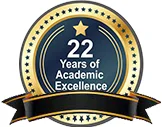Diploma in T.V. Journalism
BackA diploma in TV journalism course adorns the students with the abilities required and demanded to become an efficient and effective reporters for print and electronic media. TV Journalism is a valuable and particular skill that is much in demand across the world. Our TV Journalism course teaches and trains students in all forms, of what they require to succeed in this competitive, fast-moving, and rewarding career world. NIMC trains its students on how to cover important events as media professionals. We provide our students practical experience to develop an aptitude for news and a willingness to be at the scene of exciting and even frightening events.
Today, the definition of media has changed and media has many sub forms like Broadcasting with the help of TV and radio, films and videos, internet that includes blogs, forums, music, news, then publishing of books, papers, magazines, and it also includes postal mail, telephone and other interactive media. The media has various purposes like providing entertainment, education and advocacy among others. Thus the scope of a career in media industry is vast. The Media industry is growing rapidly.
PG Diploma in TV Journalism & Communication
All courses have been designed keeping in view the market demands. The courses give students abundant exposure in all aspects of journalism and mass communication. Short term courses focus on specific market needs. Course like Certificate in TV News Reading and Reporting Non-Linear Editing, Video Camera give rigorous training to students in that particular field vis--vis giving them a feel of the whole media world.
PG Diploma in TV Journalism & Communication
Eligibility : 12th
Pass
No. of
seats : 20 per batch
Medium : Hindi &
English
Affiliation : own flagship course
PG Diploma in TV Journalism (Hindi Medium)
The objective of Diploma In TV Journalism is to educate and train the creative talent to an appropriate professional standard for the screen presentation. At nimc, we believe that a complete television professional should be capable of writing, shooting, editing, presenting and directing his own show. To this end, the institute will provide the students of this course with the necessary instructions, hands-on experience and the resources. The students will be helped to develop an aesthetic appreciation of the screen as a medium for communication and prepare then to make an effective use of it. Film making and TV Programme making is teamwork and involves a huge number of working hands. To co-ordinate the working of these hands as if they belong to one person is a difficult task and requires someone to have thorough knowledge of all the working hands. This person is called the Director. The field of Direction is vast. It ranges from Directing Documentary films, News & Current Affair programmes, educational and instructional films, advertisement and corporate films, entertainment, fictions, soap operas and of course, feature films too.
A well rounded television professional has to visualize his presentation with moving images and, therefore, to understand and make use of the potential of the camera for picturisation; he has to use the shot material and, therefore, learn the art and craft of editing has to work on his voice and speech for reading the news, interviewing people and anchoring a show; he must also learn the art of writing for the screen, directing and producing a show. In short, he has to train himself as a presenter, cameraperson, video editor, director and producer. The trainers of nimc who are specialist practitioners from a wide variety of professional backgrounds, will help the students of this course to develop various skills through practical classes and production projects beside imparting intensive theoretical instruction. The education and training during the session has been divided into three phases the orientations phase, working skills development phase and production projects phase The theoretical component of the education and training in the course will be about forty percent. The remaining sixty percent of the course will be practical in nature. Development of practical skills on voice and speech, camera and lighting techniques, video editing, sound recording, screen writing, producing and directing for the screen will be some of the major thrust areas of education and training.
Objectives of the Curriculum
- To make students aware of technical and aesthetical aspects of Television Journalism.
- To develop capacity of evaluation and analysis of the events happening around us.
- To develop skills for writing script, Voice Over and for these medium.
- To develop skills of understanding of job prospectus in the field of newspaper, radio and television.
Course Outline
- Introduction to T.V. Journalism
- Language and Television
- Reporting
- Live Telecast
- Interview
- Anchoring/News Reading
- Camera Aesthetics
- Digital Video formats
- Lighting
- Introduction to Editing
- Concepts of Linear Editing
- Concepts of Non Linear Editing
- Editing process
- Electronic News Production System
To cover this vast subject T.V. Journalism students are imparted exhaustive training on practical situations. Student Directors have to develop an idea and shoot and produce a quality programme under the guidance of the expert faculty. Sufficient inputs on script and screenplay writing are given to the student directors for various kind of programmes.

